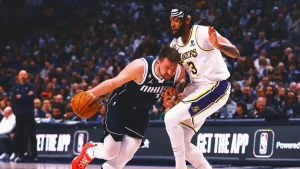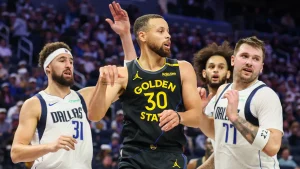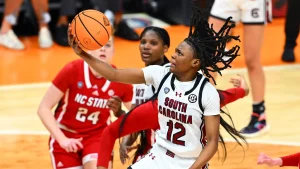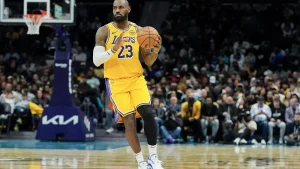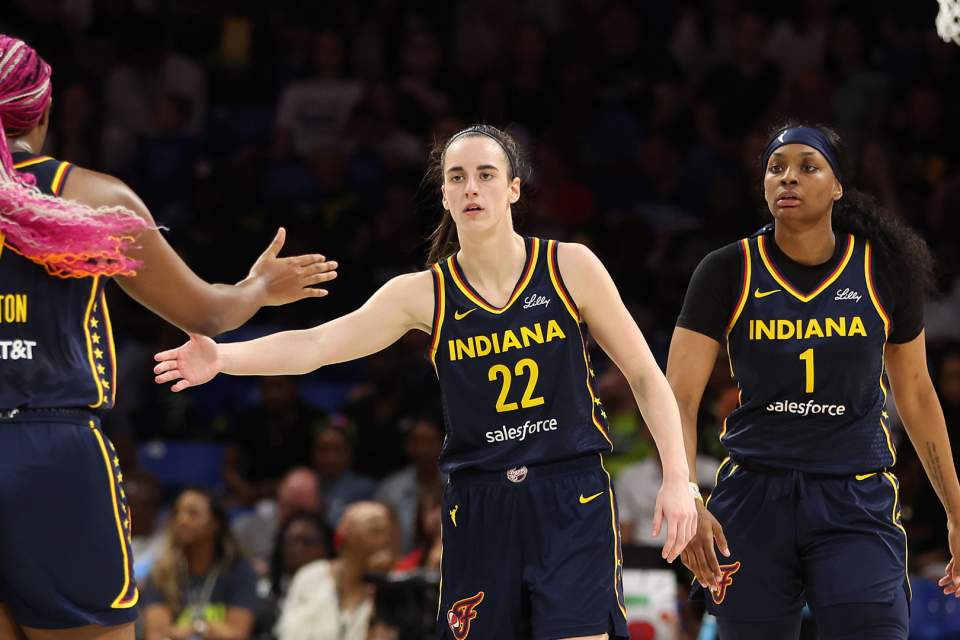
WNBA’s Fever Waives Indiana Hoosiers Legend Grace Berger
The Indiana Fever’s decision to waive Grace Berger, an Indiana Hoosiers legend, sent ripples through both the professional basketball and collegiate sports communities. Grace Berger’s journey from a celebrated college player at Indiana University to a rising star in the WNBA was an inspiring narrative that many fans and analysts alike had closely followed. As the Fever made this difficult decision, it raised questions about the nature of roster construction, the challenges of transitioning to the pros, and the broader context of women’s professional basketball.
Background: The Rise of Grace Berger
Grace Berger’s name had been synonymous with excellence in collegiate basketball long before she was drafted into the WNBA. Hailing from Louisville, Kentucky, Berger played four seasons for the Indiana Hoosiers, leaving an indelible mark on the program’s history. She was known for her versatility, leadership, and clutch performances. During her time with the Hoosiers, Berger helped elevate the program to national prominence, earning multiple accolades and distinctions along the way.
Throughout her college career, Berger accumulated numerous honors, including being a two-time All-Big Ten selection, and she led the Hoosiers deep into the NCAA tournament. What stood out about her game was her well-rounded skill set. Berger was not just a scorer; she was also an exceptional passer, a tenacious defender, and a vocal leader on and off the court. Her basketball IQ was off the charts, and her ability to adapt to various roles on the floor made her a standout at the collegiate level.
Her impact at Indiana University was not solely confined to her individual statistics, however. Under her leadership, the Hoosiers achieved new heights as a program, consistently competing at a high level in the Big Ten and positioning themselves as contenders in the national championship race. Berger’s ability to elevate her teammates and perform under pressure made her one of the most respected players in women’s college basketball during her time.
The Transition to the WNBA
Berger’s transition from college to the WNBA was highly anticipated, given her pedigree and success in college basketball. She declared for the 2023 WNBA Draft after completing her senior season with Indiana, and her blend of skills made her an appealing prospect. While she wasn’t selected in the first round, she was chosen by the Indiana Fever as the 7th overall pick in the second round. Many saw her as a player capable of contributing right away due to her maturity, leadership qualities, and well-rounded game.
Despite the excitement surrounding her entry into the league, the transition to professional basketball was never going to be easy. The WNBA is a highly competitive league, and the jump from college to the pros often proves to be a steep learning curve for even the most accomplished players. Berger’s case was no different. As a rookie, she faced the challenge of adapting to a faster, more physical game, competing against athletes who had years of professional experience. In her first season with the Fever, Berger showed flashes of her immense potential, but consistency remained a challenge.
Despite these challenges, Berger demonstrated her resilience and determination. In several games, she showed the skill set that made her a standout at the college level—her ability to drive to the basket, her knack for creating opportunities for her teammates, and her solid defensive positioning. She was frequently praised for her basketball IQ and her willingness to put in the hard work necessary to improve. It was clear that while she had room to grow, she had the potential to be a key contributor in the league.
The Waiver: A Difficult Decision
The decision by the Indiana Fever to waive Grace Berger after just one season was undoubtedly a difficult one for both the organization and the player. Berger’s connection to the franchise was strong, both because of her Indiana roots and her potential as a developing young player. However, the realities of roster management in professional sports often mean that teams must make tough choices in order to balance their needs for the present and the future.
In the WNBA, teams are limited by roster size, and this restriction forces general managers and coaching staffs to evaluate players based not only on their current performance but also on their long-term potential. With the Fever undergoing a rebuilding phase and the need for roster flexibility, the decision to waive Berger might have been tied to the team’s strategy moving forward. There are a variety of reasons why a player may be waived, including the desire to create room for other players, financial considerations, or a mismatch between a player’s strengths and the team’s needs.
In the case of Berger, the decision might have been influenced by the fact that she had yet to fully integrate into the Fever’s system. Despite her potential, she still had areas to improve in order to become a more well-rounded and consistent player at the professional level. This isn’t uncommon for rookies in the WNBA, who often face challenges when adjusting to the faster pace and higher expectations of the league. Furthermore, the Fever may have seen opportunities to add other players who better fit their immediate needs as they continue to develop their roster.
It’s important to note that being waived doesn’t necessarily mark the end of a player’s career in the WNBA. The league is full of examples of players who were waived by one team, only to be picked up by another and go on to have successful careers. In many cases, a change of scenery can be the catalyst for a player’s development, allowing them to refine their skills and earn more playing time. For Grace Berger, this could be just the beginning of a new chapter in her professional basketball journey.
What’s Next for Grace Berger?
While the decision to waive Berger may have been a setback in the short term, it doesn’t diminish her incredible potential as a basketball player. She is still a young, talented athlete with a wealth of experience playing at the highest level in college. Berger’s skills—particularly her basketball IQ, versatility, and ability to lead—are highly valued in the professional game, and it’s likely that other WNBA teams will take notice of her potential and offer her another opportunity to prove herself.
In the immediate future, Berger may explore other options, including signing with a different WNBA team or playing overseas, where she can continue to develop and showcase her abilities. Playing overseas can provide players with valuable experience and increased visibility, and many WNBA players have used international competition as a stepping stone to success back in the United States. It’s possible that a season or two abroad could help Berger refine her skills and return to the WNBA with a greater understanding of the professional game.
At the same time, it’s important to remember that the nature of professional sports means that there are numerous opportunities for players to reinvent themselves. For Berger, this could be a chance to focus on certain areas of her game that need improvement or to take on a different role that maximizes her strengths. Whether it’s as a playmaker, a defensive specialist, or a scoring option, Berger’s future in basketball remains bright, and she has the work ethic and determination to overcome any obstacles she faces.
The Broader Context: Women’s Basketball and the WNBA
Grace Berger’s story also highlights some of the challenges faced by players in the WNBA, a league that, while growing in popularity, still operates with fewer financial resources and less exposure compared to its male counterpart, the NBA. The WNBA has made significant strides in recent years, but players still face considerable challenges as they navigate their careers.
Roster spots in the WNBA are limited, and players must constantly prove their worth to stay in the league. This can make it particularly difficult for rookies, like Berger, who may have great potential but need time to adjust to the professional game. The pressure to perform immediately is intense, and for many players, the road to success is anything but straightforward.
However, the increasing visibility of women’s sports, including the WNBA, offers hope for the future. As the league continues to grow, players like Grace Berger will likely have more opportunities to shine. And as the public’s interest in women’s basketball continues to expand, more resources will be directed toward developing young talent, ensuring that the next generation of players has the support they need to thrive.
